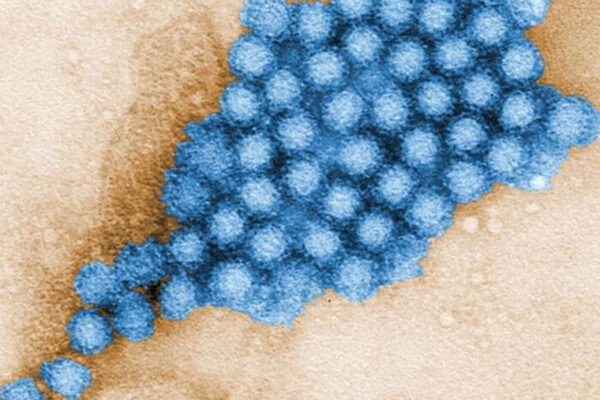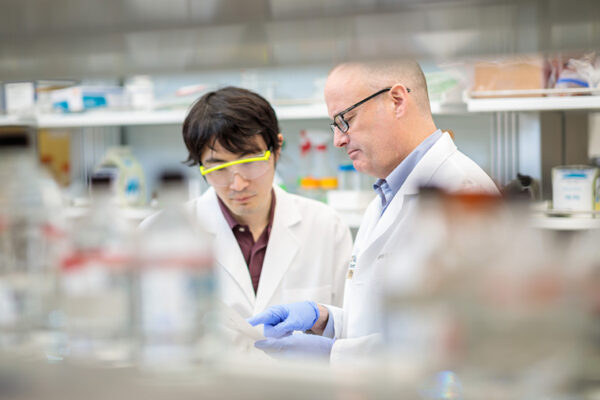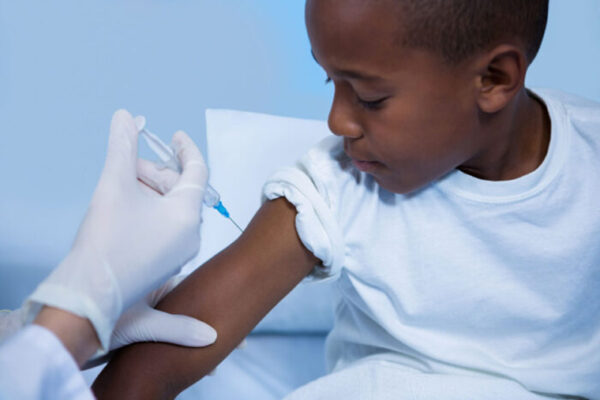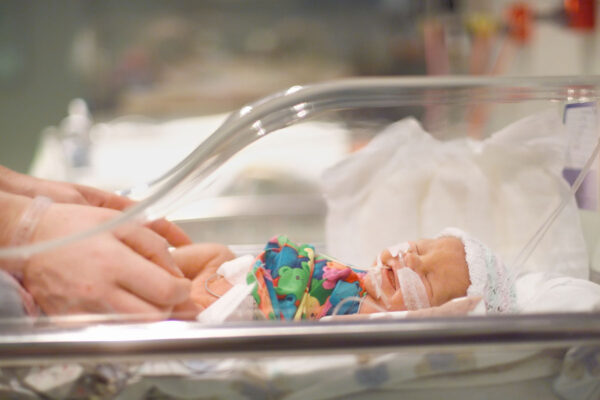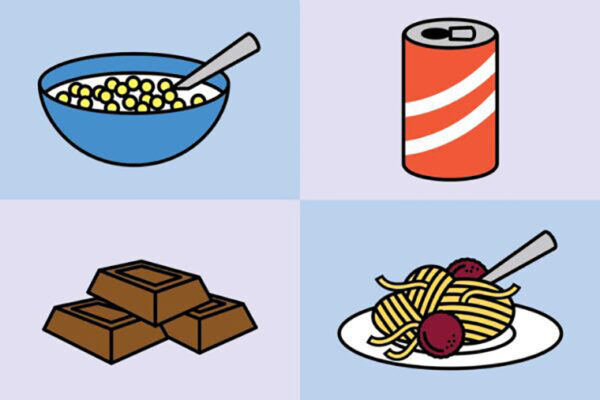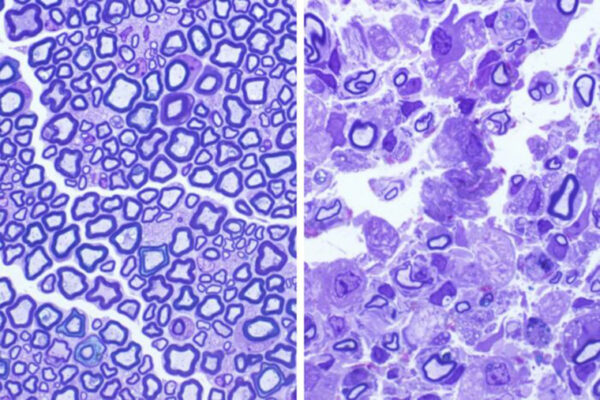Halting opioid abuse aim of several grants from NIH, CDC
Researchers at the School of Medicine have received federal grants totaling more than $10 million from the National Institutes of Health (NIH) and the Centers for Disease Control and Prevention (CDC). The grants are part of a nationwide push to fund research targeting the opioid epidemic.
Gut microbes alter characteristics of norovirus infection
A new School of Medicine study reveals details about how gut microbes interact with norovirus infection in the mouse gut. The research opens up new ways of thinking about potential therapies for this intestinal infection.
Washington People: Benjamin D. Humphreys
Nephrologist Benjamin Humphreys, MD, PhD, director of the Division of Nephrology at the School of Medicine, is a leading innovator in kidney research. Humphreys seeks to find better treatments to prevent kidney failure, a potentially fatal condition affecting 37 million Americans.
Flu antibody protects against numerous and wide-ranging strains
A human antibody that protects mice against a wide range of lethal flu viruses could be the key to a universal vaccine and better treatments for severe flu disease, according to a new study from Washington University School of Medicine in St. Louis, Icahn School of Medicine at Mount Sinai in New York City, and Scripps Research in La Jolla, Calif.
Surgeon weighs in on textured breast implants
Textured breast implants have been linked to a rare and sometimes fatal cancer. Terence M. Myckatyn, MD, who wrote about the issue in a commentary published Oct. 23 in JAMA Surgery, answers questions about the implants.
Drug reduces risk of pneumonia in newborn mice
Premature infants are at high risk of developing life-threatening lung infections, partly because their lungs are underdeveloped at birth. A new study from Washington University School of Medicine in St. Louis has found, in mice, that an inhaled drug promotes the development of lung immunity and reduces the risk of pneumonia.
Human gut microbes could make processed foods healthier
A new study from Washington University School of Medicine in St. Louis suggests the gut microbiome has an impact on how the body breaks down processed foods, such as cereals, pastas, chocolate and soda. The new knowledge could help in the development of healthier, more nutritious processed foods.
NIH funds centers to improve, diversify reference human genome
The National Institutes of Health (NIH) will provide $29.5 million to Washington University School of Medicine in St. Louis and collaborating institutions to improve the accuracy and diversity of the reference human genome sequence. The aim is to better reflect the spectrum of human diversity and make the reference genome a more useful research tool.
For hospitalized patients with fungal infections, specialists save lives
Fungal bloodstream infections are responsible for the deaths of more than 10,000 people every year. New research from the School of Medicine shows that the death rate can be reduced by 20% if infectious disease specialists oversee care of such patients.
Cause of rare, fatal disorder in young children pinpointed
Scientists at the School of Medicine have pinpointed the precise cause of Krabbe disease, a neurodegenerative condition that usually causes death by age 3.
Older Stories

